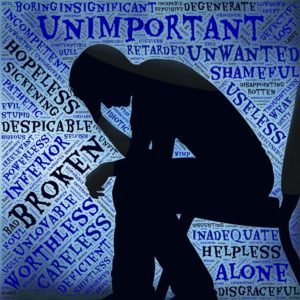|
It is normal to experience emotions ranging from shock to frustration or fear when a family member is in a mental health crisis. It can be difficult to put aside your own feelings while working to defuse the situation in front of you.
It might seem that yours is the only family dealing with these challenges, but you are not alone. Even before COVID-19, nearly 44 million adults experienced mental illness each year. One in five youth ages 13-18 experiences a severe mental health condition at some point during their life. Unfortunately, when someone living with mental illness goes into crisis, the ripple effect on the family can be particularly damaging. Caregivers to a family member with mental illness spend an average of 32 hours per week providing unpaid care to their loved one, a demanding job that can impact the well-being of the caretakers. You can read more about taking care of yourself in this NAMI article. The Holidays Are Over But The Problems They Can Cause Are Still Around. This Is A Special Form Of Stress And It Takes A Lot Of Effort To Manage Stress After The Holidays. What Is Stress? Stress Is The Physical And Emotional Reaction Of The Person In Demanding Situations, Obligations And Changes. After The Holidays All Three Conditions Are Met Because The Return To The Routine Is A Changing And Demanding Situation. What Are The Symptoms Of Stress After The Holidays? · Sadness · Melancholy · Anger · Anxiety · Tiredness · Headaches · Muscle Pain And Grasp · Feelings Of Failure To Meet The Obligations · Little Things Seem ‘Mountainous’. Expect Some Letdown. The Holiday Season Is Both Joyful And Stressful At Once. Returning To The Usual Routine And Probably Quieter Workplace Than Normal Can Dampen Your Spirits Just By The Absence Of Exciting Things To Do And Look Forward To. Equally, If Your Christmas And New Year’s Eve Period Wasn’t As Enjoyable As You Had Hoped, You Can Be Left Feeling Down About The Lack Of Enjoyment You’d Expected, And This Can Sour Your Mood. Expecting To Feel A Little Low Is A Way Of Telling Yourself That This Is A Normal Feeling And That It Will Soon Pass Once The Routine Re-Establishes Itself. Look Forward To The Year Ahead. Trying To Keep A Positive Frame Of Mind And Planning For Interesting And Fulfilling Events Throughout The Year Is A Good Way To Calm Your Current Blues. In General, To Manage Stress You Need To: · Avoid Commitments That Are Beyond Your Capabilities, It’s Ok To Say NO · Follow A Healthy Diet · Allocate Enough Time For Rest · Take Time For Yourself, Self-Care Is Important · Maintain Realistic Expectations · Stay Connected With Friends And Family · Have Priorities And Goals For Your Life · Apply Relaxation Techniques · Get Support From Qualified Professionals When Required Psychologists say that for migrant kids already in government facilities, a short separation from parents may be enough to cause lasting damage.
SCOTT SIMON, HOST: The executive order that President Trump signed this week ended the practice of separating migrant children from their parents, but no one knows yet how the children and parents already separated will be reunited. Psychologists say that those children already in government facilities, even for just a short time away from their parents, can suffer lasting damage. NPR’s Rhitu Chatterjee reports. RHITU CHATTERJEE, BYLINE: The children who’ve been split up from their parents are facing one of the biggest stresses of their lives. Megan Gunnar is a developmental psychologist at the University of Minnesota. MEGAN GUNNAR: Of all of the kinds of things that can happen to a young child, loss of that parent is the biggest kind of trauma. CHATTERJEE: She says that trauma can pave the way for a range of mental illnesses later in life. GUNNAR: Post-traumatic stress disorder, problems with attention, a lower threshold for perceiving things as dangerous, constant vigilance against bad things happening to them again, a shattering of their sense of safety in the world. CHATTERJEE: The U.S. detention centers are also set up in a way that can adversely affect kids. Charles Nelson is a developmental neuroscientist at Harvard University. And since 2000, he’s been studying children growing up in orphanages in Romania. CHARLES NELSON: There is a very eerie similarity to what I’m seeing in these detention centers or these tender care centers and what we see in Romania. CHATTERJEE: For one, he says, there’s a large number of children. NELSON: With very little in the way of caregiver support. CHATTERJEE: And that, he says, also affects their development. NELSON: Not having consistent and sensitive caregiving can lead children down a road that leads to compromised mental development, psychological development, cognitive development, biological development. CHATTERJEE: Nelson has studied the Romanian kids as they’ve grown up. He says the orphans’ brains look different. They have lower IQs. Now, most of the remaining children spent years living this way. But other research shows that even short separation can have a lasting impact. Luis Zayas is a psychologist and the dean of the School of Social Work at the University of Texas at Austin. LUIS ZAYAS: Even a few days or a couple of weeks of detention, particularly separated from a parent in the way that it was done, can cause long-term damage. CHATTERJEE: He has worked with immigrant children and families for many years. ZAYAS: With that damage, those children will enter life ill-equipped to really deal with the stresses of their future lives. CHATTERJEE: He says the damage of separation can be reduced if the children are quickly reunited with their parents. The government says it’s working on reunification, but it’s still unclear how long this will take. Rhitu Chatterjee, NPR News. Copyright © 2018 NPR. All rights reserved. Visit our website terms of use and permissions pages at www.npr.org for further information. NPR transcripts are created on a rush deadline by Verb8tm, Inc., an NPR contractor, and produced using a proprietary transcription process developed with NPR. This text may not be in its final form and may be updated or revised in the future. Accuracy and availability may vary. The authoritative record of NPR’s programming is the audio record. |
NAMI BoardThe members of the NAMI board will locate articles about mental health related events and information. Let us know if you find something helpful!. Archives
July 2020
Categories |


 RSS Feed
RSS Feed
